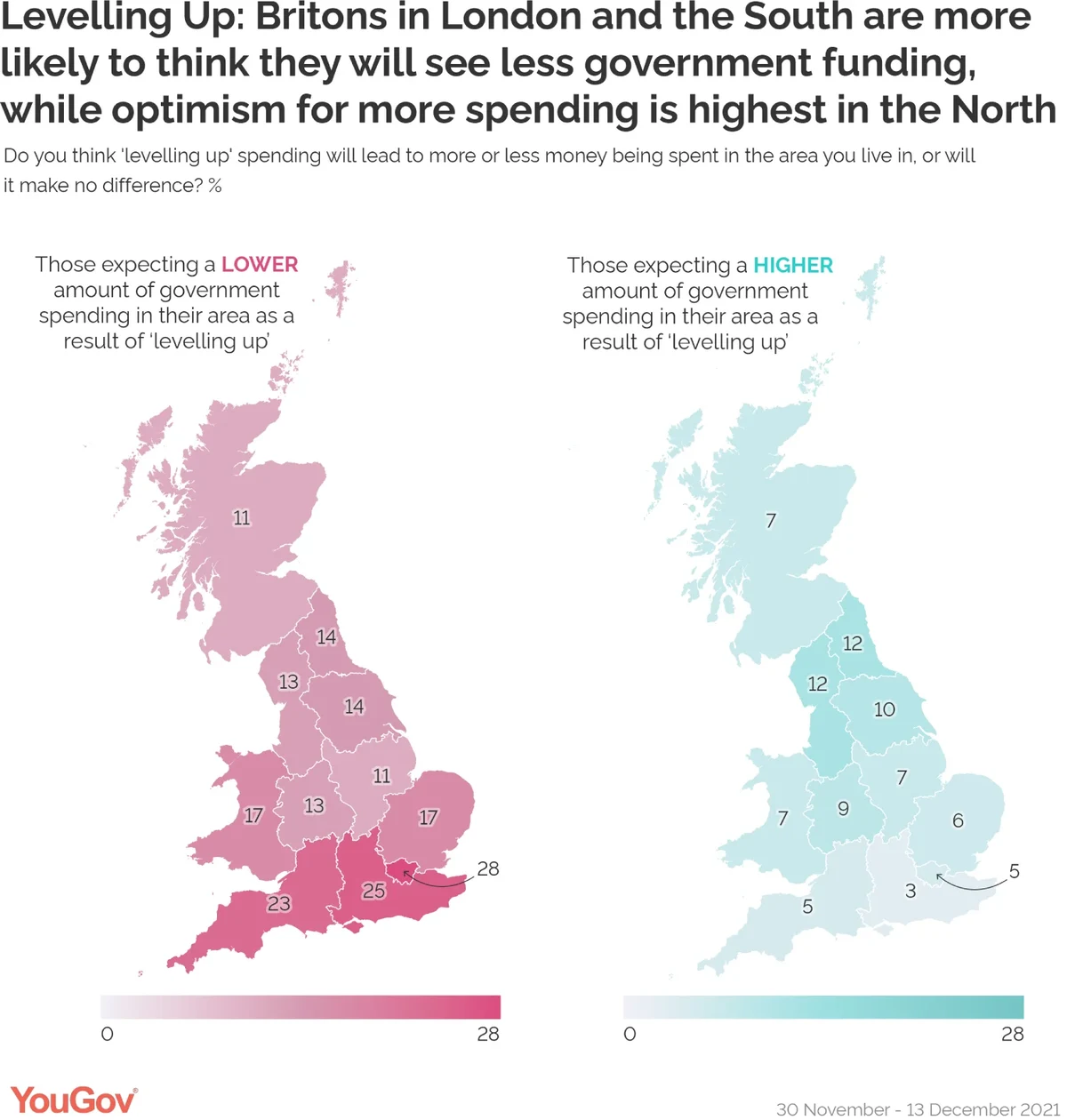People tend to think levelling up will make little difference to government spending in their local area
‘Levelling up’ – the strategy set out by the Conservative party in their 2019 manifesto – is a plan to target investment in local infrastructure in left-behind communities in the UK.
However, around a quarter of Britons (24%) have never heard of the term, according to a new YouGov survey. Another half (50%) have heard the term but either have no idea what it means or are not completely sure. A quarter (26%) say they know exactly what levelling up means.
As well as few knowing what levelling up means, three in five (58%) say they’re not following the developments of the levelling up plans, with just 9% saying they’re following the story ‘very closely’.
How do Britons feel about government spending in their local area?
Overall, half of the British public (50%) think that the current amount of money the government spends in their local area is too low, with 17% saying ‘about right’.
In the North East and the North West of England, two-thirds of residents (66% and 65% respectively) think the government is not spending enough money in their local area, the highest proportion of any region in Great Britain. This compares to just over a third (36%) of Londoners who feel the same way.
However, Britons are not confident that the levelling up fund will bring more money to their local area. Only 7% of the public overall think that levelling up will lead to more money being spent in their communities, with most (44%) saying there would be no difference. Around one in six (18%) think they would get less money as a result of the fund. Three in ten (31%) didn’t know whether the fund would lead to more or less spending where they live.
Boris Johnson promised in a speech this July that levelling up would be ‘win-win for the whole United Kingdom’ and that funding would not be taken away from London and the South.
Despite this promise, three in 10 Londoners (28%) think that levelling up will lead to less money spent in their local area, and a quarter (25%) of residents of the South East feel the same way.
While optimism for more local spending is low across all regions of the UK, it is lowest in the South East of England (3% think levelling up will bring in more money where they live), London (5%) and the South West (5%), and highest in the North East and North West of England (12%).

What should the levelling up fund target?
The government is using three key indicators to target the funds. These include looking at areas with a need for economic recovery and growth, a need for improved transport connectivity (England only), and areas with a high proportion of empty houses and commercial buildings in need of ‘regeneration’.
The British public think the government should prioritise levelling up funds to deprived areas such as those with high poverty rates (60%) and high unemployment (56%). Around half (49%) think areas with low levels of education should be a priority, and 46% say areas with mostly low wage jobs should be targeted for the funds.
Transport links were lower down the priority list at 43%, and areas with a high number of empty houses even less so, with around a quarter (26%) saying they should be a priority for the money.
See full results here






